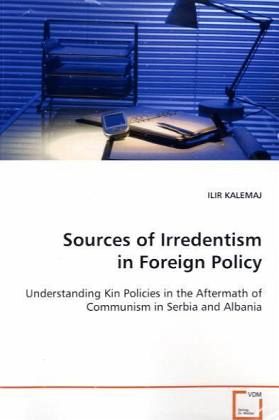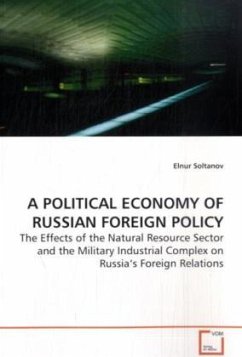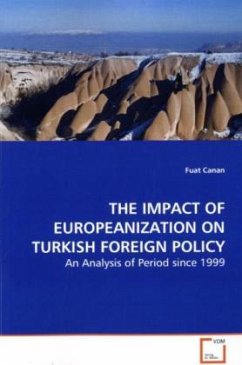
Sources of Irredentism in Foreign Policy
Understanding Kin Policies in the Aftermath of Communism in Serbia and Albania
Versandkostenfrei!
Versandfertig in 6-10 Tagen
32,99 €
inkl. MwSt.

PAYBACK Punkte
16 °P sammeln!
Irredentism in foreign policy constitutes aninteresting but not quite developed field in the IRliterature. This study discusses the backgroundconditions and sources of irredentist foreignpolicies. The book is based on a comparative casestudy,- juxtaposing Serbia and Albania,- that allowsfor an examination of various variables andcharacteristics of each case. While the processtracing method allows to critically examine thehistorical processes in both countries when thewindows of opportunity for irredentist policies openup. The main aim of the book is to discuss thepatterns of foreign policy tow...
Irredentism in foreign policy constitutes an
interesting but not quite developed field in the IR
literature. This study discusses the background
conditions and sources of irredentist foreign
policies. The book is based on a comparative case
study,- juxtaposing Serbia and Albania,- that allows
for an examination of various variables and
characteristics of each case. While the process
tracing method allows to critically examine the
historical processes in both countries when the
windows of opportunity for irredentist policies open
up. The main aim of the book is to discuss the
patterns of foreign policy toward kin in both
countries and to provide an answer of why Serbia
became increasingly irredentist in the aftermath of
Communism, while Albania refrained from following up.
The research builds up on a rationale that focuses on
the role of intermediate societal ideas, interests
and institutions in fomenting irredentist policies.
Hence, the question that this thesis seeks to answer
is: how do these societal ideas, interest and
institutions shape foreign policy with regard to
ethnic kin across the border. Second, why does this
happens only at some periods, but not in others?
interesting but not quite developed field in the IR
literature. This study discusses the background
conditions and sources of irredentist foreign
policies. The book is based on a comparative case
study,- juxtaposing Serbia and Albania,- that allows
for an examination of various variables and
characteristics of each case. While the process
tracing method allows to critically examine the
historical processes in both countries when the
windows of opportunity for irredentist policies open
up. The main aim of the book is to discuss the
patterns of foreign policy toward kin in both
countries and to provide an answer of why Serbia
became increasingly irredentist in the aftermath of
Communism, while Albania refrained from following up.
The research builds up on a rationale that focuses on
the role of intermediate societal ideas, interests
and institutions in fomenting irredentist policies.
Hence, the question that this thesis seeks to answer
is: how do these societal ideas, interest and
institutions shape foreign policy with regard to
ethnic kin across the border. Second, why does this
happens only at some periods, but not in others?












